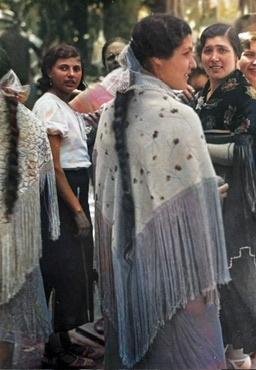What historical events most influence the current generation's views on Mallorcan independence?
Similar Topics
mallorcan independence
cultural suppression
spanish civil war
franco dictatorship
regional autonomy
catalan language
balearic islands
catalan independence movement
The current generation's views on Mallorcan independence are deeply rooted in a series of historical events that have shaped the island’s sense of identity, culture, and political stance within Spain. One of the most influential periods was the gradual centralization of Spain during the 18th and 19th centuries, which diminished regional autonomy and stifled local languages and traditions, including Catalan, the native language of Mallorca. This sense of cultural suppression laid the groundwork for emerging nationalist sentiments that sought to preserve and promote Mallorcan heritage and self-governance.
The Spanish Civil War and the ensuing Franco dictatorship (1939–1975) further intensified feelings of marginalization among many Mallorcans. During Franco's rule, regional identities were suppressed in favor of a unified Spanish identity, and political dissent was harshly punished. Following the transition to democracy and the establishment of the 1978 Spanish Constitution, Mallorca was recognized as part of the autonomous Balearic Islands region, gaining some devolved powers. However, many on the island argue that true autonomy has been limited and that economic and political decisions are still largely influenced by Madrid, fueling contemporary debates about independence and self-determination.
More recently, the broader movement for Catalan independence has had significant spillover effects on Mallorca. While not identical in aims, these movements share historical experiences of cultural preservation and political autonomy. The 21st century has also seen economic shifts, including pressures on tourism and local industries, which have reinforced desires to control the island’s economic future independently. In this context, independence advocates argue that Mallorcan sovereignty would better ensure the protection of its unique environment, cultural heritage, and economic wellbeing, reflecting a historical continuum of resistance to external control.
In summary, the current generation's views on Mallorcan independence cannot be divorced from the island’s historical experiences of cultural suppression, political marginalization, and evolving regional autonomy within Spain. These histories continue to shape local perceptions of identity and governance, influencing ongoing discussions about Mallorca’s place within the broader Spanish state and Europe.
The Spanish Civil War and the ensuing Franco dictatorship (1939–1975) further intensified feelings of marginalization among many Mallorcans. During Franco's rule, regional identities were suppressed in favor of a unified Spanish identity, and political dissent was harshly punished. Following the transition to democracy and the establishment of the 1978 Spanish Constitution, Mallorca was recognized as part of the autonomous Balearic Islands region, gaining some devolved powers. However, many on the island argue that true autonomy has been limited and that economic and political decisions are still largely influenced by Madrid, fueling contemporary debates about independence and self-determination.
More recently, the broader movement for Catalan independence has had significant spillover effects on Mallorca. While not identical in aims, these movements share historical experiences of cultural preservation and political autonomy. The 21st century has also seen economic shifts, including pressures on tourism and local industries, which have reinforced desires to control the island’s economic future independently. In this context, independence advocates argue that Mallorcan sovereignty would better ensure the protection of its unique environment, cultural heritage, and economic wellbeing, reflecting a historical continuum of resistance to external control.
In summary, the current generation's views on Mallorcan independence cannot be divorced from the island’s historical experiences of cultural suppression, political marginalization, and evolving regional autonomy within Spain. These histories continue to shape local perceptions of identity and governance, influencing ongoing discussions about Mallorca’s place within the broader Spanish state and Europe.
🧩 Related Questions
Related Question
Can visitors attend lectures or talks by local historians as part of the Lluc museum experience?
Related Question
In what ways can tourists support sustainable fishing practices while visiting Mallorca?
Related Question
Why might July and August be less suitable for traveling to Mallorca with young children?
